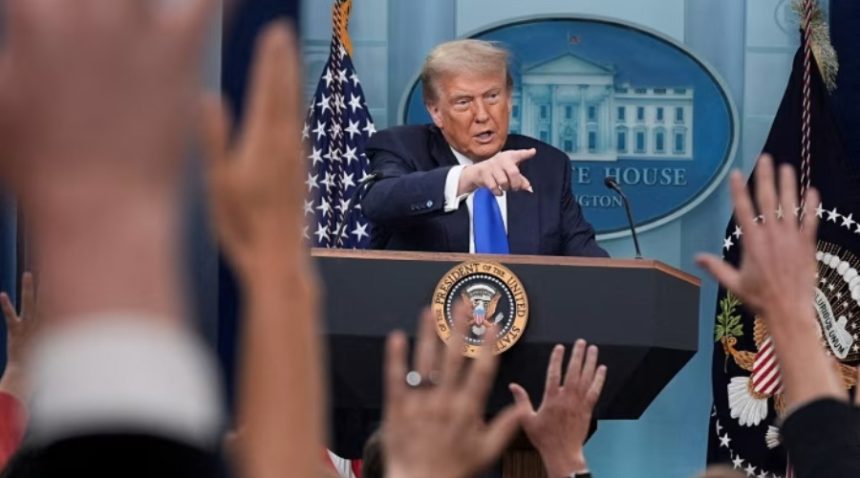Japan reacted with concern, especially since the country is heading into national elections later this month
The Trump administration decided to delay a planned 25% tariff on imports from Japan and South Korea. The new deadline is now August 1, giving both countries more time to negotiate trade terms with the United States. The delay comes as part of a larger strategy where the U.S. government has warned over a dozen countries about possible import duties.
These include major trading partners from Asia and the BRICS group, such as India and Brazil. While letters of intent have been sent, the United States has made it clear that talks are still open.
Japan reacted with concern, especially since the country is heading into national elections later this month. Officials there see the timing as politically sensitive and difficult. Trade officials from both countries are now in Washington trying to work out a deal that will avoid the tariffs.
Stock Market Reacts Cautiously
The global stock market reacts calmly to the tariff delay. In Asia, markets in Japan and South Korea record small gains after the announcement. Investors in those countries feel some relief knowing that new costs will not immediately hit exporters. This temporary pause helps ease concerns that tariffs would hurt profits in the electronics, automotive, and semiconductor industries.
US stock markets show mixed reactions. The S&P 500 falls by about 1% shortly after the news, but traders do not panic. Some investors continue to believe that the U.S. administration will eventually reduce or cancel tariffs. This belief, sometimes called the “TACO” theory—Tariffs Announced, Canceled Often—has kept optimism alive in some market circles.
Why Stocks Could Rise If a Deal Is Reached
A trade deal with Japan and South Korea could be very good news for US stocks. Both countries are major economic partners of the United States. They are important in key industries such as technology, automobiles, and defense. Avoiding new tariffs helps US companies keep their supply chains stable and costs down. It also protects profit margins.
If the US finalizes deals with these countries before the August 1 deadline, it would remove a major source of uncertainty. Investors like stability, and clear trade rules can boost confidence in the market. This could lead to gains, especially in technology, industrials, and consumer goods sectors—areas most connected to trade.
Technology Stocks Could Lead the Rally
Technology companies are closely tied to global supply chains. Many rely on parts and components from Japan and South Korea. Semiconductor firms, in particular, depend on materials from these countries. When tariffs are delayed or canceled, it lowers the risk for these companies.
If a deal is reached, big tech stocks could see renewed buying interest. This includes both hardware and software firms, especially those involved in mobile phones, computer chips, and cloud infrastructure. Investors will likely reward companies that benefit from reduced import costs and more stable international partnerships.
Lessons from Past Tariff Episodes
This is not the first time markets have faced uncertainty over tariffs. In April 2025, the Trump administration made a similar announcement about tariffs, calling them the “Liberation Day Tariffs.” Markets dropped sharply after the announcement. But when the tariffs were postponed by 90 days, stock markets bounced back strongly. The S&P 500 recorded one of its best single-day gains in recent history.
This pattern suggests that markets often overreact to tariff threats and then recover when the actual policies are softened or delayed. That history gives some investors confidence that the current round of talks will also end without long-term damage.
Risks and Dangers
Even with the current pause, risks still exist. If Japan and South Korea fail to meet US demands by August 1, tariffs could be imposed. This would likely lead to market volatility and possibly a sell-off, especially in trade-sensitive sectors.
There is also the risk that other countries will be affected. The US has sent letters to several nations, warning of possible tariffs. If talks with Japan and South Korea collapse, the focus may shift to others, increasing global trade tensions.
Political factors add another layer of complexity. Japan’s upcoming elections may limit how much its leaders can give in trade talks. South Korea also faces pressure from domestic groups who oppose certain US conditions. If politics get in the way of negotiation, the chances of a last-minute deal may decrease.
How Major Stock Indices Perform
The S&P 500 drops around 1% after the news but stays close to recent highs. This shows that investors are concerned but not panicking. The Dow Jones also slips slightly, mostly due to losses in industrial stocks that are closely tied to international trade. The Nasdaq Composite holds steady, showing mixed performance across technology stocks.
Smaller companies in the Russell 2000 index rise by about 0.7%. These firms often rely more on domestic markets and less on imports, making them less sensitive to tariff headlines. Their performance reflects investor interest in safer bets during uncertain times.
Bond Yields and Commodities Move Too
Commodities like copper see a big rise, with futures jumping over 13%. This happens because copper is often used as a global economic indicator, and any supply disruption from tariffs can increase prices. Gold and oil also show some movement, although changes are not extreme.
In the bond market, US Treasury yields rise slightly, then settle. The 10-year yield remains close to long-term averages. This suggests that investors expect some short-term risks but do not see a major crisis ahead.
What to Expect in the Coming Weeks
The most important event now is whether trade agreements with Japan and South Korea can be completed before August 1. If successful, the markets may react positively. Stocks in export-heavy sectors could rally, and overall investor confidence could rise.
If the deadline passes without a deal, tariffs could be put in place. That would likely hurt company earnings and push the markets lower. Investors are also watching for signs that the US may extend talks again or soften its stance.
US politics could also affect how the trade story develops. As the 2026 election cycle begins, economic policy and stock market performance may become key campaign issues. Trade deals that bring stability and growth could become part of that political narrative.
Final Thoughts
The decision to delay tariffs on Japan and South Korea provides short-term relief to the stock market. If talks result in solid trade deals, US stocks could benefit, especially in the technology and manufacturing sectors. But risks remain, and much depends on what happens in the next few weeks. Markets are likely to stay sensitive to every update until the August 1 deadline passes.





